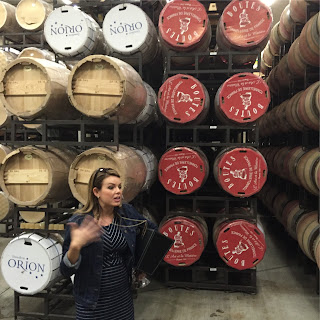Enter the GE commercial. It is short, well done, and frames its message. If it gets enough airplay it could potentially help raise awareness, to get people to think about the issue of women in STEM.
But that is not going to happen. For whatever reason the video is not sticky. There are currently less than a million views since February on YouTube. The folks that thought it up and brought it to life must be heartbroken, but that is the world we live in; not everything sticks.
Let's look at sticky a bit deeper, because this is important. The term and idea was coined in Made to Stick: Why Some Ideas Survive and Others Die, by Chip Heath and Dan Heath
The formula for stickiness in the book: Simple Unexpected Concrete Credentialed Emotional Stories (SUCCES).
- Simplicity: “It’s hard to make ideas stick in a noisy, unpredictable, chaotic environment. If we’re to succeed, the first step is this: Be simple. Not simple in terms of ‘dumbing down’ or ‘sound bites.’ What we mean by ‘simple’ is finding the core of the idea. ‘Finding the core’ means stripping an idea down to its most critical essence.”[2] GE kept it simple - what if we looked up to successful female scientists they way we look up to Wonder Woman.
- Unexpectedness: Use surprising statistics to wake up a meeting and then generate interest and curiosity. GE only uses one statistic that I can see, how many women they intend to hire in STEM positions. It isn't surprising and there is no context for it, seems like it got plastered onto the conclusion.
- Concreteness: Explain ideas in terms of human actions and speak in concrete language. An example of abstract thought in concrete language is “A bird in the hand is worth two in the bush.” Use terms that will mean the same thing to everyone in the audience. GE is close here in places, but "what if" and action are far apart.
- Credibility: Ideas have to carry their own credentials. Instead of simply presenting hard numbers, make data accessible and understandable. [3] GE succeeded here.
- Emotions: We are wired to feel things for people, not abstractions. Make people care about the idea by appealing to their emotions. Urban legends specialize in creating emotion. In research conducted with Chris Bell and Emily Sternberg at Duke University, we studied a sample of more than 100 legends that we selected because they had emotional content. When we measured the emotional impact of the legends, it turned out people wanted to retell the stories that were more emotion-provoking. When we altered the legends to make them more emotional, people became more willing to tell them. And when we measured the distribution of the legends on the Internet, legends that provoked more emotion were the most widely distributed. The emotional quotient is key to helping ideas propagate and survive.[4] GE missed here and that is probably the reason the video is not sticky. I smiled and thought, "that's nice", but was not stirred, (I surely hope this does not mean I have a calloused heart).
- Stories: People respond to narrative tales. Putting an idea into the context of a story will draw in the listener and help him remember the idea.[3] Could GE have used the story angle? Maybe a STEM student is sleeping and dreams of an alternate Millie Dresselhaus reality? It would have added 15 - 20 seconds, but potentially could have served as a foil for unexpected, emotion and would count as a story.
ACTION REQUEST: If you have not watched the video, please do. If you feel the message is important, even if not sticky, tell someone, put it on facebook, twitter etc. If we pull together, maybe we can help them get 1 million views. Thanks!
All URLs visited June 21, 2015 except as noted
NOTE: much of the text in this article is based on a previous work by the author
1. http://www.madetostick.com/thebook/excerpts.php *this page is now blocked off for direct access.
2. http://brandautopsy.typepad.com/brandautopsy/2007/01/sticking_with_m.html
3. http://www.processor.com/editorial/article.asp?article=articles%2Fp2927%2F03p27%2F03p27.asp *article is no longer accessible
4. http://www.ssireview.org/articles/entry/loud_and_clear/








